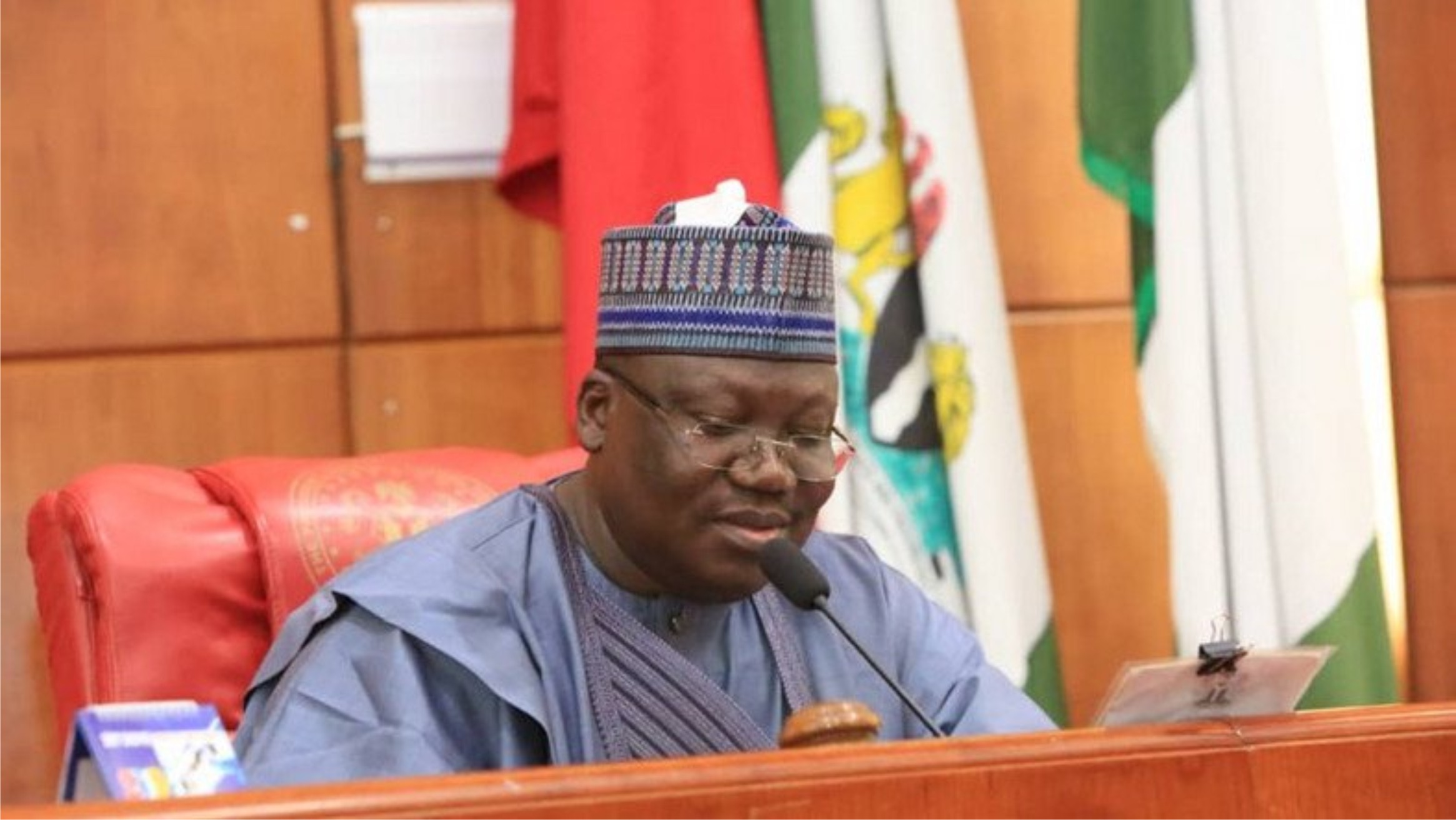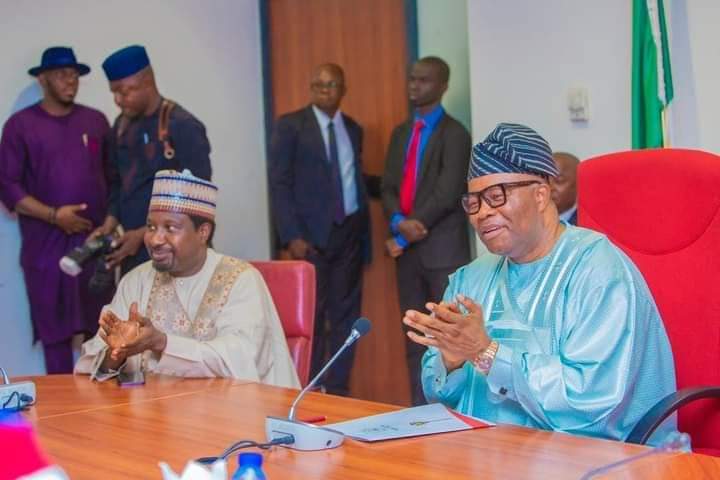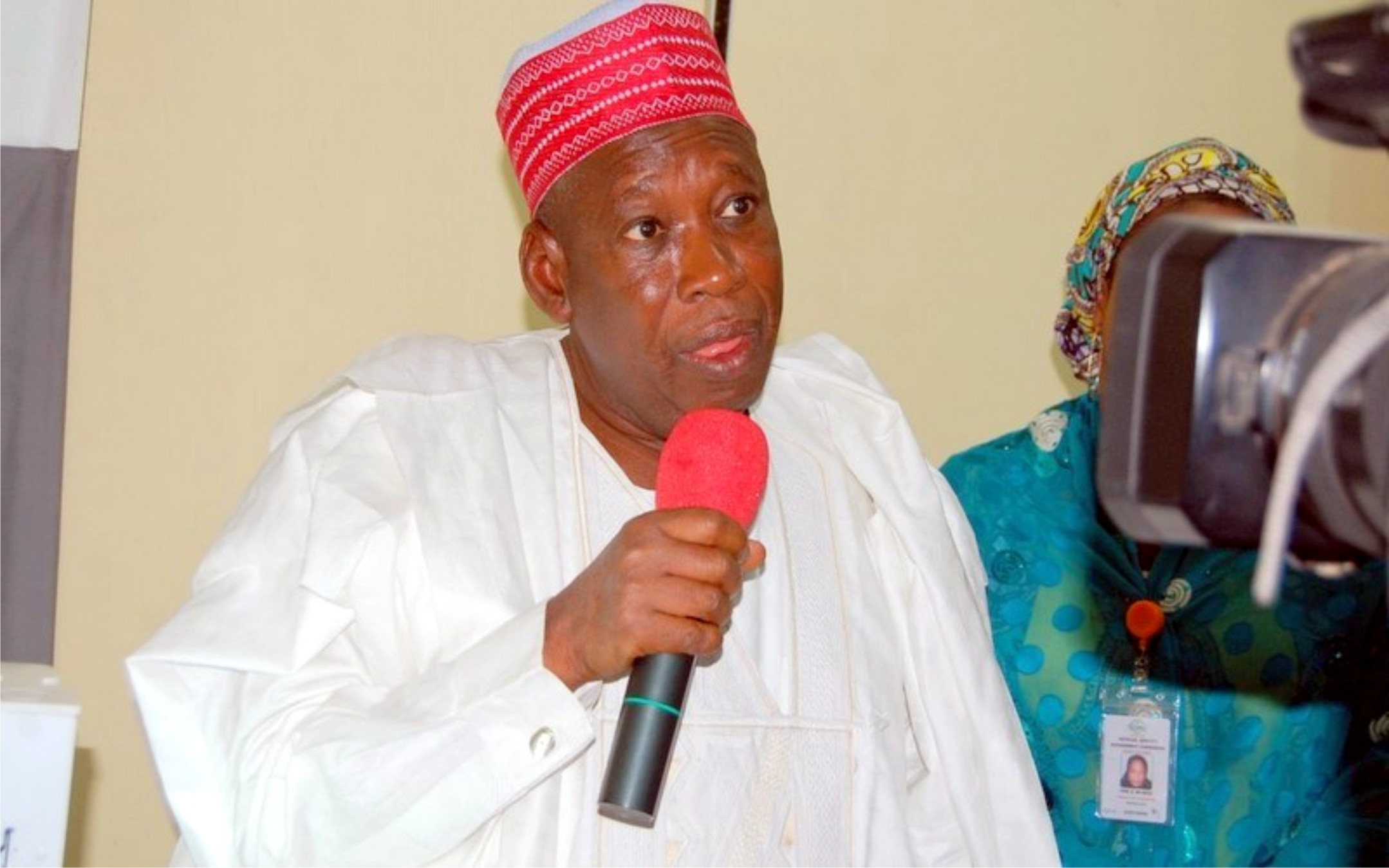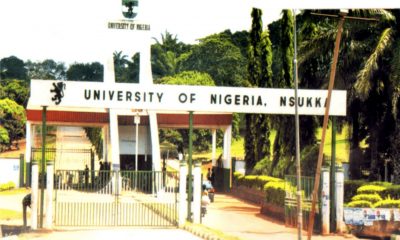Politics
Electoral Act Amendment: Still Riding The Storm

If members of the National Assembly had hoped to give themselves a quiet and rejuvenating break from their legislative labours through the year when they decided to keep the consideration and passage of the Electoral Act Amendment Bill as the last item on their agenda before proceeding on their annual recess, they must have realized by now that they didn’t do themselves any favours by the way they handled the matter, especially section 52 (3).
As things have turned out, they murdered their own sleep when they ended up with varying and divergent positions on the subject matter of the electronic transmission of election results from the polling units that fall short of the yearnings and aspirations of the people.
From the proposition, that the Independent National Electoral Commission (INEC) could employ electronic transmission of results where practicable, as indicated in section 52 (3) of the amendment bill, the senate, by a 52 votes to 28 (with 28 absentions) concluded that INEC should consider electronic transmission only if the national network coverage is adjudged by the Nigerian Communications Commission (NCC) to be adequate and secure, and then approved by the National assembly.
According to the Senate, “The commission may consider electronic transfer provided the national network coverage is adjudged to be adequate and secure by the Nigerian Communications Commission and approved by the National Assembly”.
The House of Representatives on its part, however, voted to retain the controversial clause which gives INEC the discretion to determine when, where and by what means voting and transmission of results may be conducted.
“Voting at an election and transmission of result under this bill shall be in accordance with the procedure determined by the commission, the House stipulated.
While a wide range of Nigerians and most critical stakeholder groups and individuals have since outrightly faulted, floored and condemned the senate for unconstitutionally subjecting INEC to the NCC in the discharge of its (INEC) assignment, they have not spared the green chamber for falling short of making it mandatory for INEC to transmit results by electronic means, especially when the commission itself has not complained of any inadequacy, inability or impediment to undertake the venture.
The lawmakers, on the other hand, have been laboring to explain and defend their roundly flawed position.
Speaking to newsmen last weekend while on a visit to his Yobe North Senatorial District, the Senate President, Ahmad Lawan, said the upper legislative chamber did what it did in defence of Nigerian voters whose votes may not be counted with the immediate deployment of technological means of transmitting results.
“I’m happy that we have been able to pass the amendment even though some people are complaining of what we have passed in the senate and probably what the House of Representatives also passed.
“When the majority of senators voted against immediate application or deployment of electronic transmission of results from the polling units, to the ward, to the local government, states and federal, they didn’t say they do not believe in electronic transmission.
“All of us in the senate, 109 of us, believe that at one point, our electoral process must deploy electronic transmission so that it eases and enhances the electoral process and give it more credibility and integrity”, Dr Lawan said.
Continuing, he said, “But you see, when you have not reached that stage where you could deploy the electronic transmission from every part of the country, then you have to be very careful. And no matter what anybody may say, you can not have about 50 per cent of Nigerian voters not participating or not getting their votes counted in elections and say it doesn’t matter, that we have to start the electronic transmission.
“We know the evils of not transmitting results electronically but compare the evils of electronically transmitting just half of the electoral votes from Nigerians and say you have elected a president with 50 per cent only”.
The Senate President further explained that the lawmakers expect that whenever the NCC is satisfied that INEC could deploy the technology for transmission, both institutions would approach the National Assembly for the final nod, adding that the federal lawmaking body would never turn down the request when all the conditions have been met.
However, the Independent National Electoral Commission has insisted without equivocation that it has what it takes to transmit election results from everywhere in the country, including very difficult to reach locations.
Speaking in reaction to the development on National Television, Festus Okoye, INEC’s National Chairman and Commissioner in charge of Information and Voter Education, said “We have uploaded results from very remote areas, even from areas where you have to use human carriers to access. So, we’ve made our position very clear, that we have the capacity and we have the will to deepen the use of technology in the electoral process”.
Of course, with the success achieved in the Ondo and Edo State’ gubernational elections where INEC opened a portal into which results were posted and made accessible to the public, Nigerians have refused to believe whatever explanation from the naysaying lawmakers and their apologists but are instead insistent that the national electoral body be given all the assistant, support and encouragement to consolidate on the gains already achieved.
Expressing his views on the subject matter, Adekude Adekoya, a public affairs analyst, berated the National Assembly for complicating an otherwise knotty situation.
“Now, this is really bothersome. Instead of simplifying a knotty situation, the senate seems to be worsening it. Why bring NCC into this matter? Why must the National Assembly approve it? There is a fixation about how the results of future elections will be delivered by the ruling faction of the power elite. Why this obsession?”, he queried, adding that “I suspect dark motives behind this obsession with not having electronic transmission of results is because the collation centres, which are actually business centres, will go out of business”.
According to Adekoya, “Unscrupulous politicians have always used the business, sorry, collation centres, to subvert the will of the people, time and again, and they know that the game may be up if electronic transmission is part of the law. It may explain why the clause is worded with trips and traps that will make INEC and NCC collide, while the National Assembly has already appointed itself the umpire.” Suspecting desperation by vested interests that care less about the welfare and wellbeing of the Nigerian people, Adekoya urged the lawmakers to always ensure to deliver the best that Nigerians deserved.
“Must we be stuck with politics of thuggery and elections of ballot box snatching? Technology developed from science to make life and living easier. Why don’t we want it in our electoral systemy? There seems a grand determination by people questing for power to attain it at all costs. A lame electoral law will be a huge enabler”, he said.
Evidently, this is why some Nigerians are clamouring for a review of the bill as passed by the National Assembly through the harmonization process while others are urging the President, Muhammadu Buhari, to withhold his assent unless what is delivered to him provides for the unmitigated power of INEC to organize, supervise and conduct elections without recourse to any other institution or authority as enshrined in the constitution.
However, there appears to be very little or no hope at all that the National assembly will deviate from the path it has taken as the Speaker of the House of Representatives, Femi Gbajabiamila has been reported to be urging the NCC and INEC to work together to deliver credible elections to Nigerians.
Brieging journalists in Abuja, last Tuesday, Rt. Hon. Gbajabiamila said, “INEC is empowered by our laws and the constitution to conduct elections and NCC has the mandate in terms of technology and capacity and all of that. So, they need to work together for us to have credible elections”.
The lawmakers may be on holiday, but they will have to spend every day bogged by the burden of their misadventure with the Electoral Act Amendment Bill 2021.
By: Opaka Dokubo
Politics
Reps Urge FG To Pay ASUU, NASU’s Withheld Salaries

The House of Representatives has urged the Federal Government to pay the withheld salaries of the Academic Staff Union of Universities (ASUU) and the Non Academic Staff Union (NASU).
This followed the adoption of a Motion of Urgent Public Importance by Rep. Abubakar Fulata (APC-Jigawa) during plenary on Wednesday.
Presenting the motion, Fulata said that the government must accede to the unions’ demands because they were genuine.
Adopting the motion, the House urged the President to direct the relevant bodies to come up with modalities for negotiation with both ASUU and NASU.
The House said this would enable them to come up with workable, implementable and final agreement to be signed by both parties.
The House urged the president to direct the Ministry of Finance, to ensure full implementation.
The House mandated its Committees on University Education, Polytechnic Education, Federal Colleges of Education, Labour and Productivity, Finance, Legislative Compliance to ensure compliance.
Politics
Bill To Prescribe Salaries, Allowances Of Judicial Officers Pass 2nd Reading

The bill seeking to prescribe salaries, allowances, and fringe benefits of Judicial office holders in Nigeria has passed second reading at the Senate.
This followed the presentation of the general principles of the bill by the sponsor, Sen. Lola Ashiru (APC-Kwara) at plenary on Thursday.
Presenting the bill, Ashiru said the bill, an executive bill, was forwarded to the two Chambers of the National Assembly by President Bola Tinubu, in accordance with provisions of Section 58(2) of the Constitution of the Federal Republic of Nigeria 1999, as amended.
He said the bill, in a nutshell, seeks to prescribe salaries, allowances and fringe benefits for judicial officers in order to nip in the bud, the prolonged stagnation in their remuneration.
This, he said was to reflect the contemporary socio-economic realities of the time.
Ashiru said the bill intends to unify the salary structure, allowances and fringe benefits of judicial officers holders both in the Federal and at the State levels.
“This proposed legal framework, undoubtedly, will bring about significant improvement in the welfare, capacity and independence of the Judiciary, which have been contentious issues of public discourse over the years.”
He said that the intent of the bill was in conformity with the current administration’s resolve to strengthen the country’s Judiciary and the criminal justice system .
This, he said was to ensure its independence in the performance of its constitutional role, as the arbiter of the temple of justice.
He urged the senators to support the expeditious passage of the bill in view of its importance to the socio-economic and political development of this country.
Sen. Mohammed Monguno (APC-Borno), who seconded the motion said it was necessary to ensure adequate remuneration of Judicial officers was in line with the current economic reality.
He said that there was the need to provide an adequate remuneration that would prevent judicial officials from being tempted for corruption.
Sen. Orji Kalu (APC- Abia ) commended the executive for presenting the bill to prescribe a remuneration for the judicial arm of government, saying that no right thinking Nigerian would want to oppose it.
He urged the officials to ensure that justice is dispensed rightly to Nigerians.
He also urged the government to improve remuneration of other sectors given the economic reality.
Deputy President of Senate, Barau Jubrin (APC-Kano) said the President has done creditably well by presenting the bill for remuneration of the judicial officials.
He said the judicial officials had suffered in silence for as they were not disposed to speaking up on the issues, just like the labour unions.
He said it was cheery and commendable for President Tinubu to have brought the bill, which was designed to enhance the salary and welfare of the judicial officials.
President of Senate, Godswill Akpiabio said presentation of the bill was a right step in the right direction by President Tinubu.
Akpabio, referred the bill to the committee on Judiciary, Human Rights and Legal Matters for further legislative inputs and to return back to plenary in four weeks, after the bill was read for the second time.
Politics
Court To Hear Suit Against Ganduje’s Suspension, May 28

Justice Abdullahi Muhammad Liman of the Federal High Court, Kano, has fixed May 28 for hearing in the substantive application filed by the All Progressives Congress (APC) National Chairman, Abdullahi Ganduje.
Dr Ganduje is challenging his suspension from the party by factional ward executives led by one Basiru Nuhu Isa.
He was first suspended by APC Ganduje Ward executives led by one Haladu Gwanjo on April 15. Another faction emerged and also announced suspension of Dr Ganduje on April 20.
The Tide source reports that the secretary of the party in Kano, Zakari Sarina, said the suspension by the faction was another case of impersonation.
Dr Ganduje is seeking a declaration that his suspension from the party without giving him opportunity to defend himself amounts to violation of his fundamental right to fair hearing.
He is also seeking a declaration that his suspension by the faction was unlawful, null and void.
Counsel for the embattled APC chairman, Hadiza Ahmad, applied for service on the respondents by substituted means which the court granted.
Justice Liman adjourned to May 28 for hearing in the matter.
-

 Business3 days ago
Business3 days agoCustoms Condemns Attack On Officers In Katsina
-
Politics24 hours ago
Dissolve Your Cabinet Now, Senator Ibrahim Tells Tinubu
-
Women23 hours ago
Women Can Eradicate Child Abuse In Homes
-

 Business22 hours ago
Business22 hours agoVets Make Case For Massive Investments In Agric Technology
-
Rivers3 days ago
FG inaugurates PH-Aba Rail Project … As Train Service Begins
-

 Niger Delta2 days ago
Niger Delta2 days agoCommunity Demands Employment Quota From Public, Private Institutions
-
Niger Delta24 hours ago
Diri Approves Land For FG’s Housing Project
-
News22 hours ago
NSCDC Commandant Bags Five-Year Jail Over Employment Fraud

